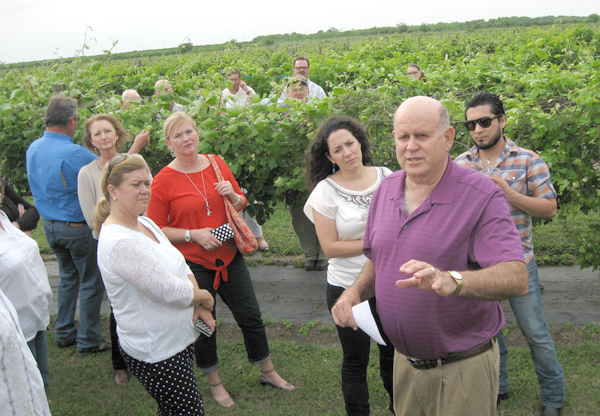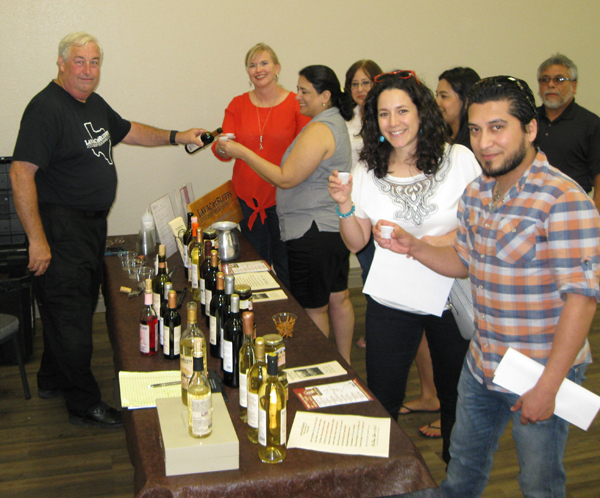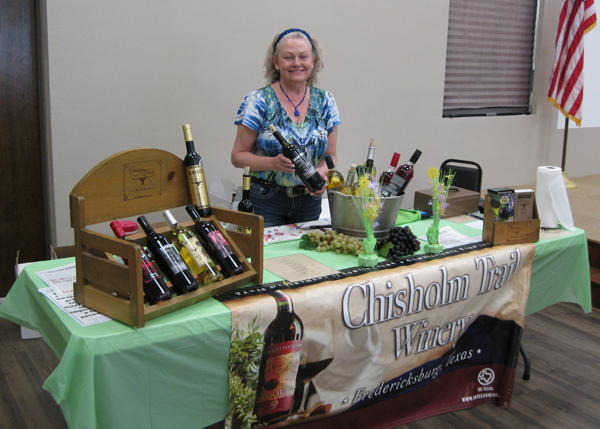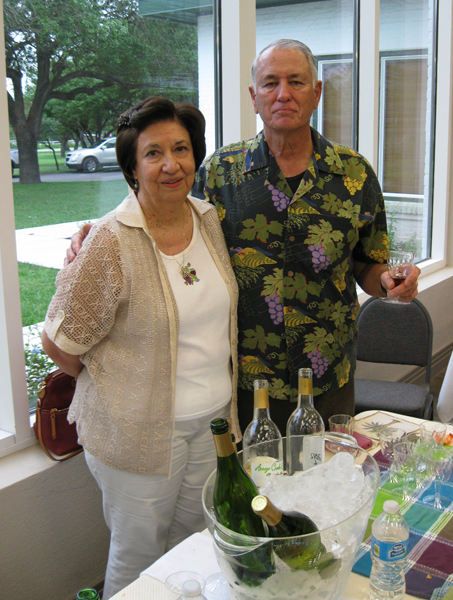- La Feria Community Holds Succesful Business Mixer Event
- Little Nashville to Take Place in Downtown Mercedes
- Lions Basketball Captures District Gold
- La Feria ISD Students Compete in Regional Chess Tournament
- Lions End First Half of 32-4A on a High Note
- La Feria ISD Held Another Successful Parent Conference
- Strong Appearance for Lions at Hidalgo Power Meet
- LFECHS Students Get to Meet Local Actress
- Students Participate in Marine Biology Camp
- Two LFECHS Students Qualify for All-State Band
Rio Farms Wine Festival 2015
- Updated: May 8, 2015
“Texas Now Producing Premium Wine Grapes”

Bill Keltner
Some friendships just get better with age. And the love affair Texas wine lovers have with wines produced from their own state has made Texas the fifth-largest wine producing state in the nation. If that is a surprise, here is another one: Rio Farms Inc wine grape vineyards just north of Monte Alto has earned a reputation for growing some of the country’s finest wine grapes producing premier wines in a diversity of offerings.
This achievement was highlighted during the Grape Growing and Wine Festival 2015 hosted by Rio Farms Inc. in cooperation with the Texas Department of Agriculture, Texas A & M AgriLife Extension, and USDA-ARS. Some 150 commercial wine producers, hobbyists and assorted wine lovers gathered on the grounds of Rio Farms to tour the vineyards and listen to lectures by A & M viticulturists and Texas AgriLife horticulturists. They also got to sample the delightful array of wines produced from Rio Farms grapes as they enjoyed an incredibly delicious, gourmet evening meal.
Andy Scott has been the Director of Research at this private research foundation since its inception. Whatever has been accomplished has been through his skillful management and visionary persistence.

Scott personally led a caravan of buses and cars through the sprawling acres of experimental grape vines hanging on nice, sturdy trellises—all the varieties looking healthy and well. “But,” he added, “it has been a long hard haul to get where we are today with the three varieties that can thrive in South Texas soil and our climate.”
Rio Farms got a grant from the government with instructions to find varieties of edible and wine producing grape vines that would flourish here. “Everybody said that it couldn’t be done here for a number of reasons, and we proved them wrong,” he said. “Our saving grace was that we didn’t know we couldn’t do it….and lots of luck.”
“At first we thought they were right,” he continued. “We planted dozens of grape varieties—and they all withered and died from Pierce’s disease and Glassy-winged sharpshooter insects—we had it all. Then, finally, after a while, someone noticed three varieties were doing fairly well: They were the Blanc du Bois, the Black Spanish and Convent varieties. Now, what to do? It was obvious: We ripped out all the dead vines and replanted with these thriving three varieties; and we were off.! Now, happily, there is a new variety in progress called Hussman.
After the tour with Andy Scott, we heard Dr. George Ray McEachern, Texas A & M Professor of Horticulture trace the history of viticulture in America. “It all goes back 170 years to Thomas Jefferson who experimented with growing imported European grapevines on his Monticello mansion in Virginia,” he explained. “All the famous French and Italian varieties died because the soil was not compatible. But, that, fortunately, gave Jefferson the impetus to develop local American varieties.

Guests sampling wines from La Vaca Bluffs Winery of Lolita,TX.
The early Catholic missionary priests and nuns came in for credit in producing a durable variety of grape that would withstand Texas and Mexican soil and climate conditions. The new variety was developed to provide wine for their required religious services. The variety is aptly named Convent in view of its origin.
Other A & M speakers included: Dr. Justin Sheiner, Viticulturalist; Dr. Juan Anciso, Horticulturalist; Dr Okufemi Alabi, Pathologist; and Ashley Gregory, Horticulturalist with the Texas AgriLife Extension.
Director Andy Scott said, “Our mission is to do research and help others to succeed. We are not a winery nor never will be; we are not going to compete, but support others and share information with them.” Then he singled out exhibiting Commercial Winemakers:

Paula Williamson of Chisholm Trail Winery of Fredericksburg

Wine hobbyist Doctor and Mrs. Rey Rodriguez
Paula Williamson of Chisholm Trail Winery of Frederiksberg and Doug Reed of La Vaca Bluffs Winery from Lolita, Texas. “They buy our grapes, and I can tell you that their wine is about as good as you’ll find anywhere,” he added.
Several Home Winemakers were present and exhibited samples: Among them: Dr. Rey Rodriguez, Delfino and Nora Garza, Richard Vos and Michael & Claudia Sanders. Legally, home winemakers can produce up to 200 gallons per household or about 1,000 bottles per year, as long as they consume it or give it away.
Well, pardner, that about concludes our visit with Rio Farms and their unique General Manager, Andy Scott. They are both one-of-a-kind. So, why don’t you check out his claims about Texas wines from Texas grapes wherever they sell good wines. His other passion is to help fellow oenophilists to start hobby vineyards for fun and pleasure. If interested, call him at (956) 262 1397 in Monte Alto.



One Comment